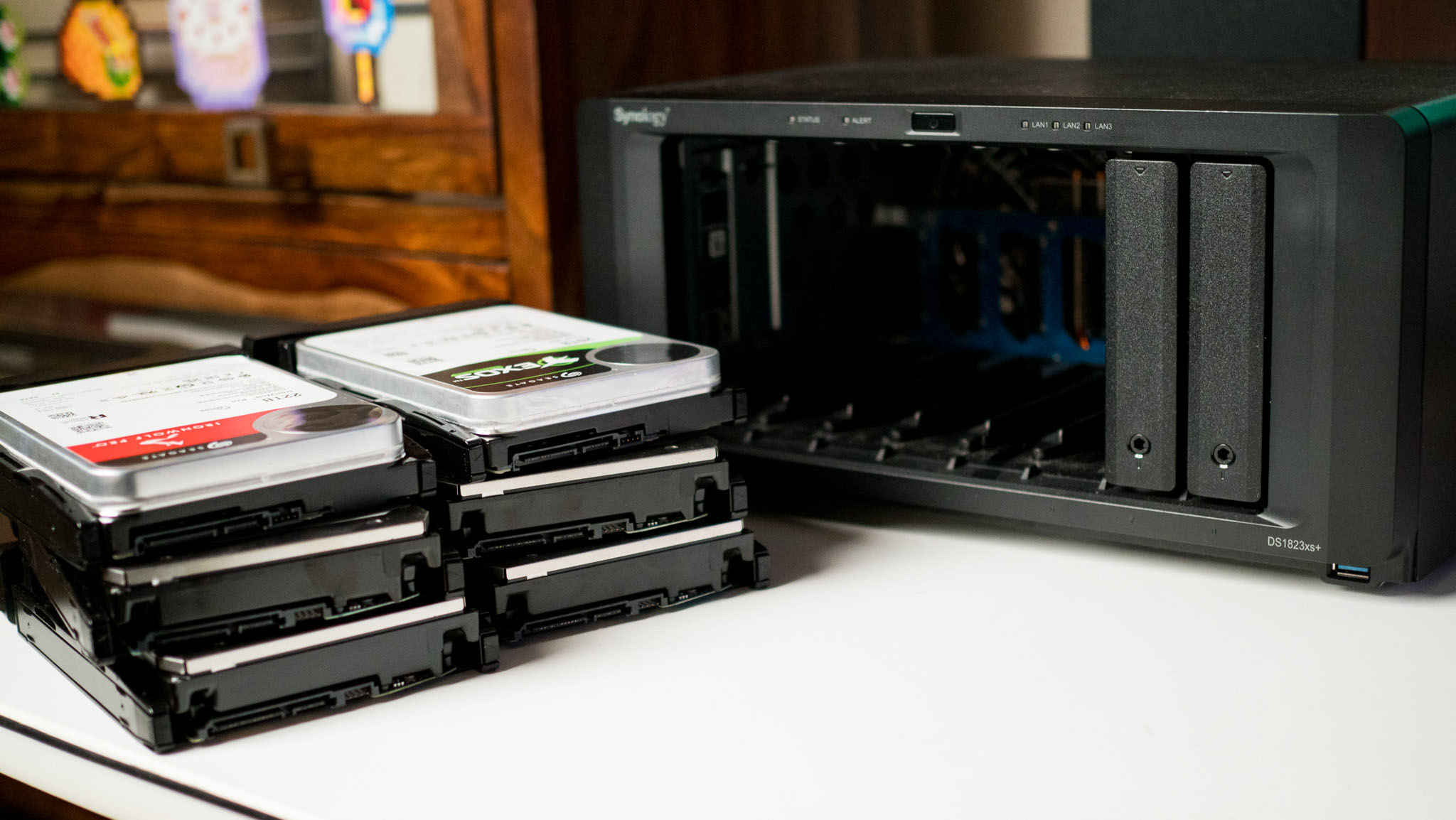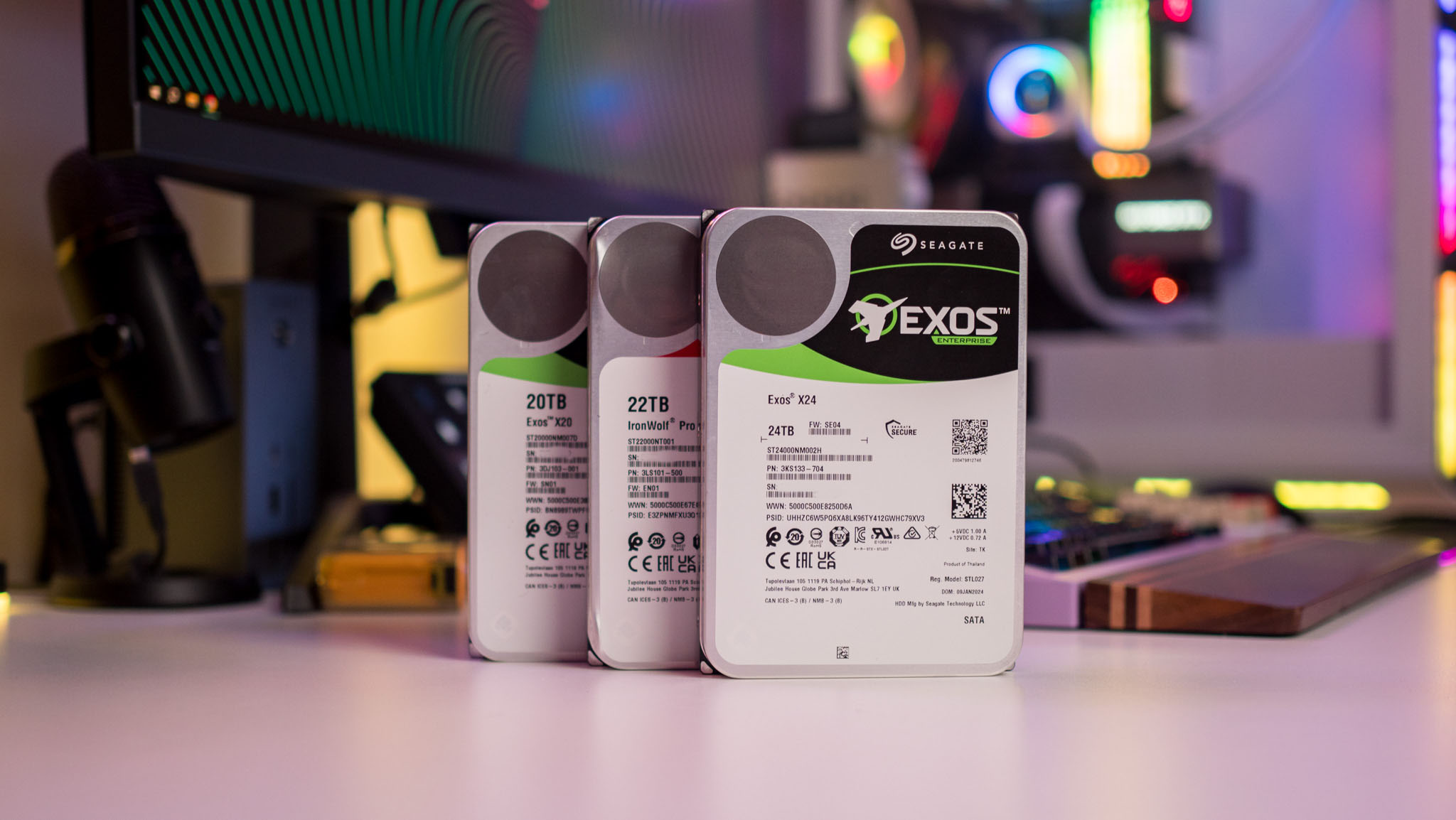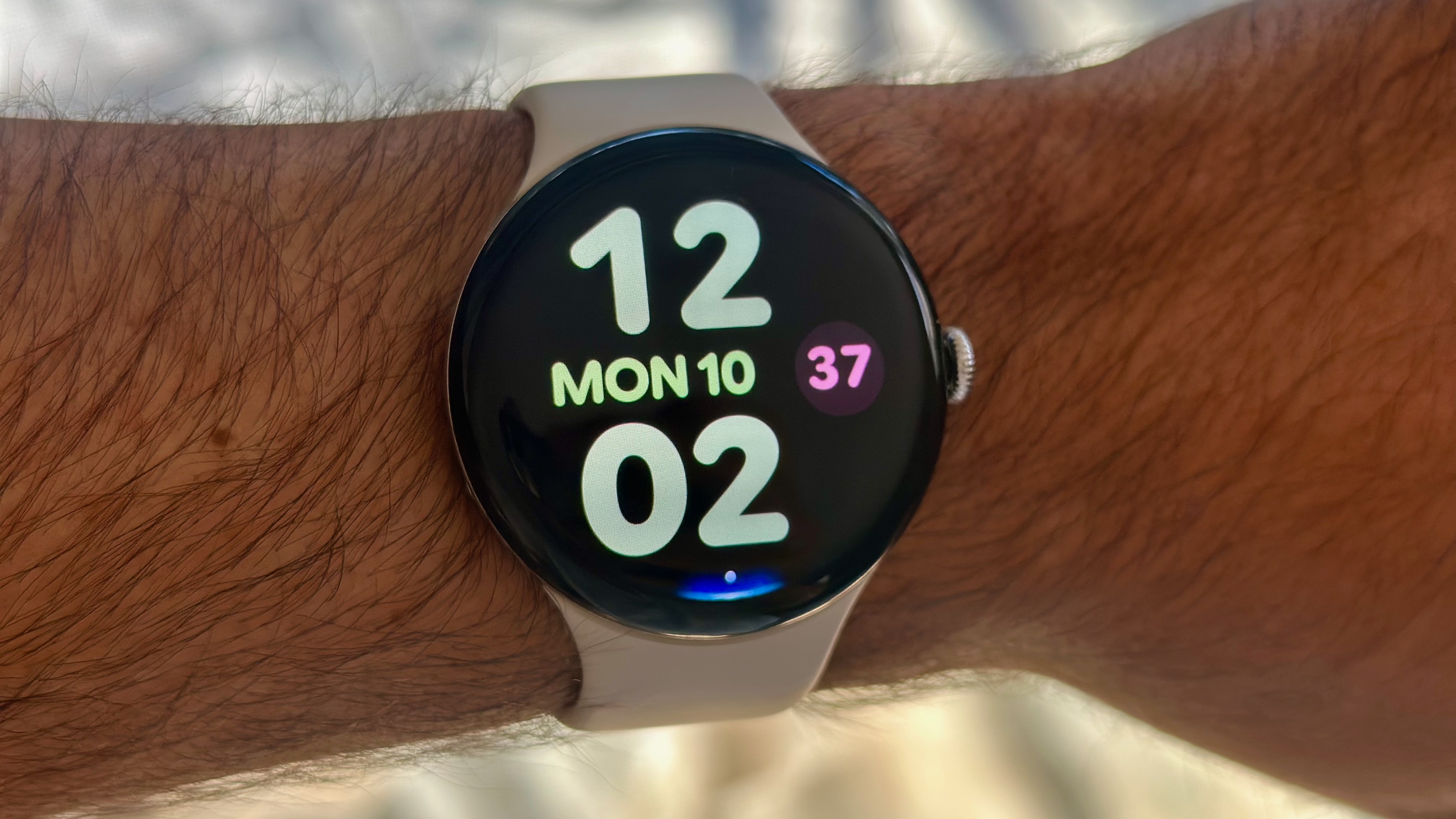30TB HAMR hard drives are now a reality, and I'm excited
Seagate's Mozaic 3+ drives have high-density platters and can last longer than regular HDDs.

I'm constantly running out of storage, and while I used 12TB and 14TB drives predominantly in the past, that wasn't sufficient anymore, so I decided to switch to a new NAS server. I turned to the DiskStation DS1823xs+, and slotted in four 18TB HAT5310 drives alongside an assortment of Seagate Exos and IronWolf drives I'm testing long-term, bringing the total storage to 114TB.
The addition of Seagate's excellent Exos X24 24TB drive increased the addressable storage to 138TB, and for once, I'm actually ahead of my storage requirements — I don't see myself filling these drives for at least another year or so. That timing works out well, because in that time, we should start seeing retail availability of Seagate's next-gen Heat Assisted Magnetic Recording (HAMR) drives.

In Hardwired, AC Senior Editor Harish Jonnalagadda delves into all things hardware, including phones, storage servers, and routers.
Most HDDs in the market today use Conventional Magnetic Recording (CMR) or Shingled Magnetic Recording (SMR), and if you're buying anything that's 8TB or above, there's a good chance that it uses CMR. With ever-increasing storage needs, hard drive manufacturers are figuring out ways to maximize data density on a platter; the 24TB Exos X24 uses 10 platters, with each platter able to hold 2.4TB of data.
When writing data to a CMR drive, the magnetic tracks are arranged side-by-side, so changing data on one track doesn't affect neighboring tracks. SMR drives, meanwhile, maximize density by overlapping tracks, and this makes the drives more affordable, but affect read/write transfers to a noticeable degree. While high-density SMR drives are used in data centers, they're not ideal for home use scenarios involving plenty of read/write workloads.
With HAMR drives, we're seeing the introduction of 30TB HDDs. That's a sizeable achievement, and Seagate is already selling a 30TB drive called the Exos Mozaic 3+, albeit to enterprise customers. The drive is built on the Mozaic 3+ platform, and it utilizes a 10-platter design — just like the Exos X24 — but with each platter now containing 3TB of data.
When storing that much data on a single platter, the individual bits are so tightly packed together that changing one bit has the potential to alter nearby bits. HAMR tech counters this by a novel method: lasers. HAMR drives use a plasmonic metal antenna (a diode laser) that's attached to each write head, and the laser heats a minuscule section of the disk platter at a time, allowing the write head to change the polarity of the bit — but not others around it. This process takes a nanosecond, and doesn't otherwise affect the thermal stability of the drive.

Because of the way the tech works, only the data in the area targeted by the laser diode is altered, and once it cools, it regains its magnetic coercivity. To achieve this, Seagate is using custom hard drive platters that consist of an iron-platinum alloy and a glass substrate, and as the material has higher coercivity, it is thermally stable until it comes into contact with the laser.
Get the latest news from Android Central, your trusted companion in the world of Android
All of this basically means that we can now get drives with significantly higher areal density, leading to HDDs going up to 70TB and beyond. That's still some way out, but with Seagate now selling 30TB and 32TB drives based on the Mozaic 3+ platform to data center customers, we don't need to wait too long before these drives are available to retail buyers.
There's the small matter that even if Seagate rolled out 30TB drives to consumers today, there aren't many home NAS servers that can accommodate the drives. Most enclosures go up to 24TB, and it's going to be a year or two until we start seeing NAS servers that can slot in 30TB and higher-storage drives.
Even though if you don't need (or want) 30TB drives, their introduction will reduce prices of current 20TB and 24TB drives, and that's always welcome. The 24TB Exos X24 is already a decent bargain at $479 considering the amount of storage on offer, but the introduction of higher-density should bring down those figures. I can't wait.

Harish Jonnalagadda is Android Central's Senior Editor overseeing mobile coverage. In his current role, he leads the site's coverage of Chinese phone brands, networking products, and AV gear. He has been testing phones for over a decade, and has extensive experience in mobile hardware and the global semiconductor industry. Contact him on Twitter at @chunkynerd.
You must confirm your public display name before commenting
Please logout and then login again, you will then be prompted to enter your display name.
